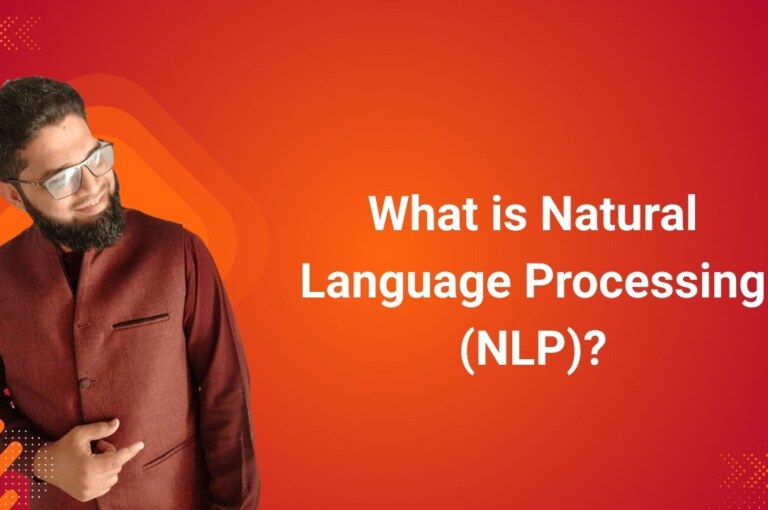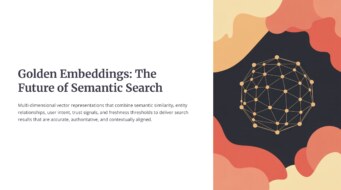Natural Language Processing (NLP) is the branch of Artificial Intelligence that allows machines to understand, interpret, and generate human language in a way that’s both meaningful and context-aware. In 2025, NLP is the connective tissue between human expression and machine comprehension — powering everything from semantic search engines to conversational AI assistants.
Search engines now use NLP to interpret intent, entities, and relationships within content rather than simply matching keywords. This marks a decisive move from lexical to semantic systems — a transformation supported by models such as BERT, GPT-4, and Gemini 2.
Within semantic SEO, NLP forms the base layer for constructing entity graphs, understanding semantic similarity, and building topical authority that search engines can quantify.
The Linguistic and Computational Foundations of NLP
At its core, NLP blends linguistics, computer science, and machine learning to model how meaning is created and interpreted. The term itself merges “natural language” (the languages humans use every day) with “processing” — the computational manipulation of that language.
The discipline matured through three stages:
Rule-based systems, built on grammar and logic.
Statistical models, using probabilities and n-gram distributions.
Neural networks, which employ sequence modeling to understand words within context windows.
Modern NLP relies heavily on transformers, architectures that enable attention mechanisms over long sequences. These have redefined how machines interpret contextual coverage and contextual hierarchy across paragraphs, helping search engines derive intent from entire passages rather than isolated terms.
The NLP Pipeline: How Machines Comprehend Meaning
NLP operates through a structured pipeline that mirrors human comprehension:
Text Input and Preprocessing – tokenization, normalization, and the removal of stop words.
Syntactic Parsing – identifying part-of-speech, dependencies, and sentence boundaries.
Semantic Analysis – mapping entities and relationships via named entity recognition (NER).
Discourse Integration – linking references and pronouns for cohesion.
Text Generation or Response – transforming understanding into meaningful output.
Each stage builds a richer semantic relevance map, allowing algorithms like Google’s Multitask Unified Model (MUM) to connect entities across topics and languages.
For SEOs, this means every heading, paragraph, and annotation you write feeds into a structured semantic model that the engine can decode. Proper markup and contextual consistency reinforce your knowledge-based trust — ensuring content is seen as credible and contextually accurate.
Core NLP Tasks That Shape Search Understanding
Tokenization and Lemmatization
These processes segment text into words or sub-words and normalize them to their base forms. They are critical in avoiding keyword cannibalization and improving topical clarity.
Named Entity Recognition and Linking
NER identifies entities such as people, organizations, or locations, while linking maps them to knowledge bases like Wikidata. This enhances entity salience and importance signals for search.
Sentiment and Intent Analysis
By assessing tone and emotion, NLP helps engines interpret whether a query seeks information, navigation, or transaction — enriching query optimization strategies.
Semantic Similarity and Contextual Embeddings
Contextual embeddings from models like BERT distinguish polysemy — for instance, differentiating “Apple the company” from “apple the fruit.” These embeddings drive semantic indexing in modern search pipelines.
Together, these tasks turn text into structured meaning graphs, where relationships, not keywords, define visibility.
NLP and the Semantic Search Revolution
Before NLP advancements, search relied on lexical matching — counting term frequencies and weighting them through metrics like TF-IDF or BM25.
Now, semantic systems interpret what users mean rather than what they type.
NLP powers this transformation through:
Intent modeling that distinguishes “buy,” “learn,” and “compare.”
Entity graph expansion, connecting related nodes across your content network.
Passage ranking, where specific paragraphs rank independently.
Query rewriting, aligning vague or long-tail inputs with canonical meanings.
For content strategists, this shift demands topical map planning — ensuring every cluster captures depth, breadth, and relational momentum around an intent.
Applying NLP Principles to SEO Content Strategy
Integrating NLP into SEO requires aligning your writing with machine interpretation:
Use annotation texts to define context — e.g., annotate “Mercury” as planet or chemical element.
Strengthen anchor text with descriptive, entity-rich phrasing that reflects intent.
Employ structured data via Schema.org to help search engines connect your entities within the web’s knowledge graph.
Refresh content frequently to maintain a high update score, signaling relevance and freshness.
Build clusters that respect contextual borders and use contextual bridges to guide readers naturally between related topics.
When executed properly, NLP-aligned content architecture transforms your site from a set of articles into a coherent semantic content network — improving discoverability, trust, and engagement
The Rise of Transformer Models and Contextual Understanding
Modern NLP owes its leap in performance to transformer architectures, first introduced by Vaswani et al. in 2017. These models replaced sequential processing (like RNNs) with attention mechanisms that understand context across entire documents — not just nearby words.
Google’s BERT and Transformer Models for Search marked the first large-scale application of transformers to web search, enabling contextual meaning extraction from every query. Unlike Word2Vec or Skip-Gram, which generate static word vectors, BERT captures how meaning changes across context — transforming how semantic similarity is computed.
These models led to new advancements:
Contextual embeddings vs static embeddings — dynamic representations that adapt to context.
Dense vs sparse retrieval models — combining neural retrieval with traditional keyword indexing.
Vector databases & semantic indexing — allowing search systems to store meaning instead of words.
For SEO, this evolution means content must now be crafted not for keyword frequency, but for contextual relevance, entity clarity, and semantic cohesion.
Knowledge Graphs, Entities, and Meaningful Connections
At the heart of NLP-driven search lies the knowledge graph — a structured network that connects entities (people, places, concepts) via relationships.
When NLP models identify entities in your content and link them to external or internal knowledge sources, they form semantic bridges that improve your site’s entity salience and importance.
To reinforce these relationships:
Use schema.org structured data to describe entities explicitly.
Align your vocabulary across pages through ontology alignment and schema mapping.
Ensure entity consistency using entity disambiguation techniques — helping search engines know that “Apple” refers to the company, not the fruit.
A site built around coherent entity relationships functions like a semantic graph, making your brand discoverable within larger ecosystems such as Google’s Knowledge Panels.
Generative NLP and Large Language Models
The emergence of large language models (LLMs) such as GPT-4, Claude, and Gemini has ushered NLP into a generative era. These models can create, summarize, and translate content using billions of parameters trained on multi-domain corpora.
Frameworks like REALM and DPR fuse retrieval and generation, enabling “retrieval-augmented generation” (RAG). Such architectures combine vector retrieval with knowledge-grounded reasoning, reducing hallucinations and improving factual reliability.
For SEO and content marketing, this generative shift means:
Automating content drafts aligned with query rewriting and intent analysis.
Using learning-to-rank models (LTR) to prioritize content relevance.
Applying zero-shot or few-shot understanding for long-tail queries, expanding visibility beyond traditional keyword coverage.
Generative NLP doesn’t replace human writing — it amplifies it, allowing strategists to build deeper, topical maps while maintaining semantic quality and trustworthiness.
Evaluating NLP Systems and Search Quality
To measure how effectively NLP enhances retrieval and ranking, search engines use evaluation metrics for IR like nDCG, MAP, and MRR.
These metrics assess how well a system orders relevant documents. The key is to balance recall (finding all relevant results) with precision (keeping only the most useful ones).
Complementary systems such as click models interpret behavioral signals — clicks, dwell time, and satisfaction — while re-ranking models fine-tune the top results for accuracy.
In practice, this ecosystem shows that SEO is no longer about keyword insertion but about optimizing for understanding. The better your content aligns with the way NLP interprets entities, intent, and relationships, the higher its search visibility.
NLP Challenges and Limitations
Despite extraordinary progress, NLP still faces core limitations:
Ambiguity and pragmatics: Understanding sarcasm, idioms, or cultural nuance remains difficult.
Bias in data: Models can reproduce societal biases from training data.
Explainability: Deep models like transformers are hard to interpret.
Researchers are addressing these with explainable NLP frameworks and fine-tuning methods that align models with ethical principles.
From an SEO standpoint, the takeaway is clear — you cannot rely solely on machine-generated optimization. Maintain editorial oversight, human tone, and E-E-A-T semantic signals to ensure credibility.
The Future of NLP in Semantic SEO
Looking ahead, NLP will continue to shape how content is discovered, ranked, and trusted.
Emerging directions include:
Multimodal NLP integrating text, voice, and image understanding.
Cross-lingual embeddings improving global content discoverability.
Continuous learning models that adapt to topical freshness, connected to Google’s Query Deserves Freshness (QDF) principles.
Ontology-driven search where meaning, not words, determines relevance.
In this evolving landscape, brands that treat NLP as part of their semantic content network — continuously linking, updating, and expanding context — will dominate organic visibility.
Final Thoughts on Natural Language Processing and SEO
Natural Language Processing is the bridge that connects human expression to algorithmic understanding. For SEOs and content architects, it’s not merely a technological concept — it’s the grammar of modern search.
By integrating entity relationships, contextual flow, and semantic structure, your content becomes both human-readable and machine-interpretable.
Search engines are no longer looking for exact phrases — they’re seeking understanding. NLP is how they achieve it.
When you combine NLP principles with knowledge-based trust, update score, and query optimization frameworks, you don’t just rank — you resonate.
Frequently Asked Questions (FAQs)
How does NLP differ from traditional keyword-based search?
Traditional search relies on keyword matching; NLP interprets meaning and intent using contextual embeddings and entity graphs.
What is the role of NLP in topical authority?
It ensures content demonstrates semantic coverage, interlinked entities, and consistent expertise — strengthening topical authority in your niche.
Can NLP improve featured snippet optimization?
Yes. NLP models identify structured, concise answers suitable for snippets by analyzing structuring answers and contextual formatting.
Is NLP relevant for local SEO?
Absolutely. NLP helps Google interpret geographic intent and entity context, improving results for Local SEO and voice-based queries.
How often should NLP-informed content be updated?
Regularly — aligning with your update score and historical data for SEO helps maintain freshness and trust in search systems.
Want to Go Deeper into SEO?
Explore more from my SEO knowledge base:
▪️ SEO & Content Marketing Hub — Learn how content builds authority and visibility
▪️ Search Engine Semantics Hub — A resource on entities, meaning, and search intent
▪️ Join My SEO Academy — Step-by-step guidance for beginners to advanced learners
Whether you’re learning, growing, or scaling, you’ll find everything you need to build real SEO skills.
Feeling stuck with your SEO strategy?
If you’re unclear on next steps, I’m offering a free one-on-one audit session to help and let’s get you moving forward.
Table of Contents
Toggle




Leave a comment